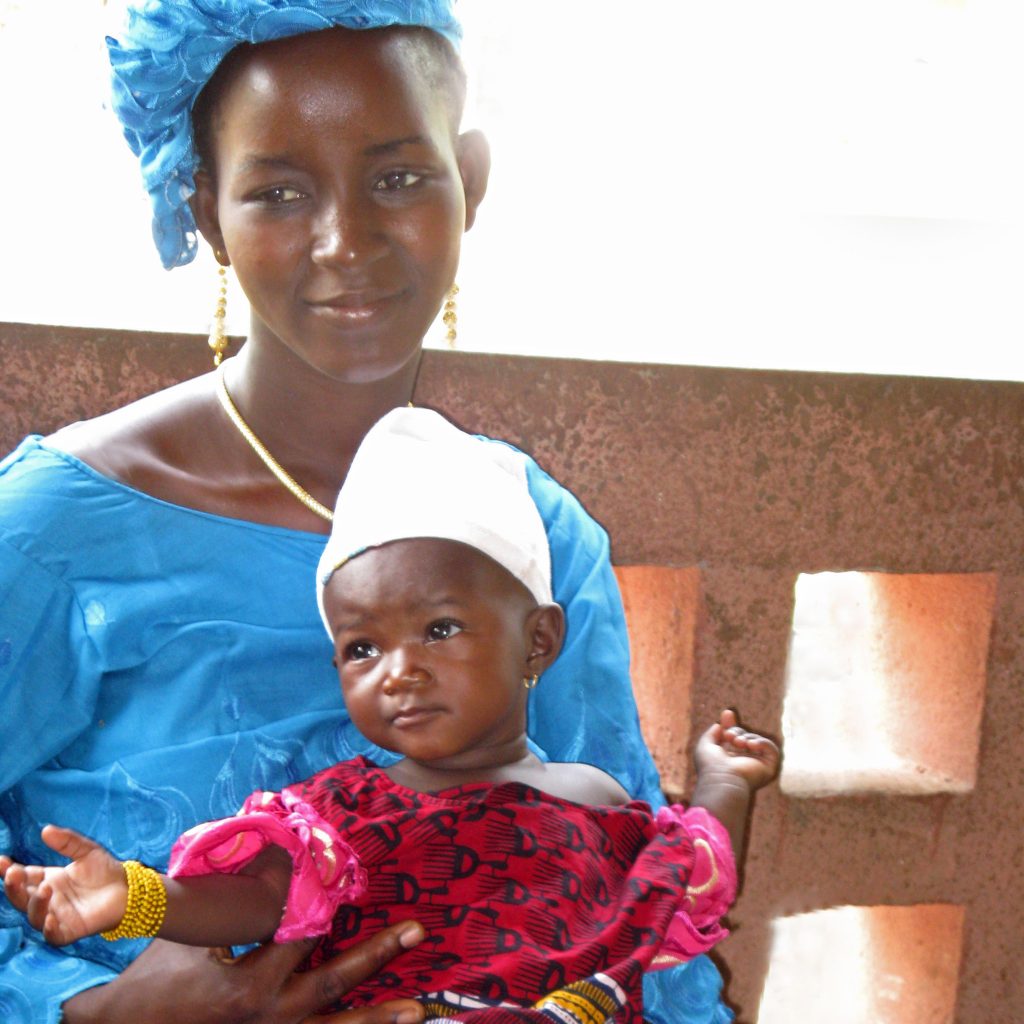
Mother and child at the health center in the Dabola District of rural Guinea. Credit: Virginia Lamprecht/Photoshare
To increase uptake of intermittent preventive treatment for pregnant women (IPTp), the President’s Malaria Initiative (PMI) supported the national malaria control program to revise the Guinea malaria in pregnancy guidance in accordance with the latest World Health Organization recommendations. Participants updated the training manuals and protocol for malaria prevention during pregnancy. PMI trained 18 national antenatal care (ANC) staff trainers, 1,052 chiefs of health centers and heads of health posts, ANC staff, and staff from private facilities on IPTp using the revised manual. PMI also distributed approximately 25,425 sulfadoxine-pyrimethamine treatments to cover the 19 PMI-supported prefectures and Global Fund to Fight AIDS, Tuberculosis and Malaria zones.
To complement the revised policies and extend access to malaria in pregnancy services, Guinea developed an approach using community health workers (CHWs) to promote ANC attendance. A total of 680 CHWs were trained to deliver targeted messages on ANC (including use of long-lasting insecticide-treated mosquito nets, sanitation, early care-seeking) and IPTp. These messages were integrated into the CHW training manual, and CHWs were encouraged during their home visits to verify whether pregnant women were: 1) keeping their ANC appointment; 2) receiving SP after the 13th week; 3) sleeping under a net; and 4) seeking early care in case of fever. The CHWs were equipped with information, education and communication materials and data collection tools. Each CHW received forms to monitor their home visits and notebooks to record his or her daily activities. The CHWs conducted 75,606 home visits and were able to reach 425,748 people (of whom 233,504 were women).
In the context of the ongoing Ebola epidemic in Guinea, it is even more critical than ever to minimize febrile illness among pregnant women; more comprehensive coverage of malaria interventions should result in fewer episodes.
